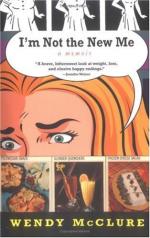From the Civil War collection of Mr. Robert Coster. Edward Dickinson Baker was born in London, February 24, 1811. In his infancy his parents emigrated to America, and his father became a teacher at Philadelphia. There Edward was apprenticed to a weaver; but he disliked the trade, and soon gave it up and left home. He drifted to Belleville, Illinois, about 1826, and was followed a year later by his parents. For several months he drove a dray in St. Louis, Missouri; then removed to Carrollton, Illinois, and studied law. His early experience at the bar was disheartening, and upon becoming a member of the Christian church he resolved to enter the ministry; but political success about this time caused a change of mind, and robbed the pulpit of a splendid ornament. In 1835 he removed to Springfield, and in 1837 was elected to the legislature. He achieved immediate distinction as an orator, and for the ensuing fifteen years he ranked among the foremost lawyers and politicians of the State. He was reflected to the House in 1838, served in the State Senate from 1840 to 1844, and was then elected to Congress. Upon the breaking out of the Mexican War he returned home, and raised a regiment of which he was commissioned colonel. After the war he removed to Galena, and was there sent back to Congress. In 1851 he went to the Isthmus of Panama with four hundred laborers to engage in the construction of the Panama Railroad. In 1852 he went to San Francisco, California, where he at once became the leader of the bar. He was not successful there in any of his political aspirations, and removed to Oregon. That State at once made him a United States Senator. The Civil War coming on, he resigned his seat in the Senate, raised “the California regiment,” immediately went to the front, and was killed at Ball’s Bluff, October 20, 1861.—. J. McCan Davis.]
In 1844, being a presidential elector, Lincoln entered the canvass with ardor. Henry Clay was the candidate, and Lincoln shared the popular idolatry of the man. His devotion was not merely a sentiment, however. He had been an intelligent student of Clay’s public life, and his sympathy was all with the principles of the “gallant Harry of the West.” Throughout the campaign he worked zealously, travelling all over the State, speaking and talking. As a rule he was accompanied by a Democrat. The two went unannounced, simply stopping at some friendly house. On their arrival the word was sent around, “the candidates are here,” and the men of the neighborhood gathered to hear the discussion, which was carried on in the most informal way, the candidates frequently sitting tipped back against the side of the house, or perched on a rail, whittling during the debates. Nor was all of this electioneering done by argument. Many votes were still cast in Illinois out of personal liking, and the wily candidate did his best to make himself agreeable, particularly to the women of the household. The Hon. William




